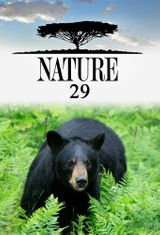
Nature 29
2010-09-26 | Documentary,Family | 16 episodes43 Seasons
Episode
Cuba: The Accidental Eden (2010)
Cuba may have been restricted politically and economically for the past 50 years, but its borders have remained open to wildlife for which Cuba’s undeveloped islands are an irresistible draw. While many islands in the Caribbean have poisoned or paved over their ecological riches on land and in the sea in pursuit of a growing tourist industry, Cuba’s wild landscapes have remained virtually untouched, creating a safe haven for rare and intriguing indigenous animals, as well as for hundreds of species of migrating birds and marine creatures. Coral reefs have benefited, too. Independent research has shown that Cuba’s corals are doing much better than others both in the Caribbean and around the world.

Echo: An Elephant to Remember (2010)
Echo, Africa’s most famous elephant, was the subject of many films and the matriarch of perhaps the most studied wild elephant herd in the world. In May of 2009, she died of natural causes. This film is a look back at this remarkable animal through extraordinary footage and interviews with the researchers that cared for and studied Echo and her family.

A Murder of Crows (2010)
Although cultures around the world may regard the crow as a scavenger, bad omen, or simply a nuisance, this bad reputation might overshadow what could be regarded as the crow’s most striking characteristic – its intelligence. New research indicates that crows are among the brightest animals in the world. NATURE’s A Murder of Crows brings you these so-called feathered apes, as you have never seen them before.

Braving Iraq (2010)
As recently as the 1980’s, Iraq’s Mesopotamian Marshes were reminiscent of the Garden of Eden – indeed, many biblical scholars believe they are one and the same. Fed by the combined waters of the Tigris and the Euphrates rivers, this enormous marshland of over 6,000 square miles dominated southern Iraq. For more than 7,000 years, these wetlands provided a bountiful home for both wildlife and humans. A large population of indigenous people, the Ma’dan Tribes known as Marsh Arabs, had thrived there for centuries. But in the 1990’s, due to political conflict, Saddam Hussein attempted to eradicate them – not through systematic extermination, but by destroying the marshes on which they depended for survival. Massive canals were dug, diverting river water away from the wetlands and towards the Persian Gulf. Huge embankments were built to prevent water from entering the marshes. What had been a green paradise twice the size of the Everglades shrank to less than 10% of its original size. Most of it was transformed into a parched, lifeless desert. The wildlife and the people were forced to leave.

Wolverine: Chasing the Phantom (2010)
Wolverines are among the most elusive creatures on the planet. They seek out the toughest terrain – the most rugged, remote and fiercely raw – and they’ve always been scarce to begin with.

Photo
